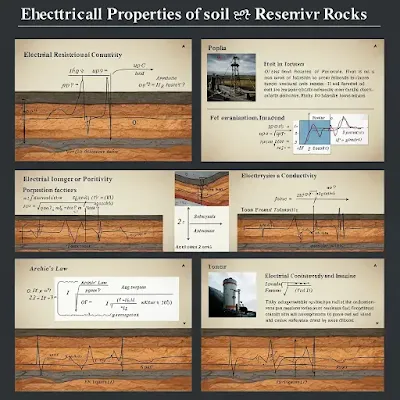Lecture on Electrical Properties of Reservoir Rocks
Understanding Electrical Properties of Reservoir Rocks
Introduction
The electrical properties of reservoir rocks are crucial for understanding their behavior in petroleum engineering. This topic is particularly relevant for students in petroleum engineering programs as it relates to the study of rock properties that influence oil and gas extraction.
 |
| Understanding Electrical Properties of Reservoir Rocks |
Key Concepts
Formation Resistivity Factor (F):
This factor helps in assessing how easily electrical current can flow through the rock, whichh is essential for evaluating reservoir characteristics.
Resistivity Index (I):
This index provides insights into the saturation of fluids within the rock pores, helping in determining the presence of hydrocarbons.
Archie's Equations:
These equations are fundamental in estimating porosity and water saturation based on resistivity measurements, which are vital for reservoir evaluation.
Lecture Overview
The lecture will cover:
1.Conductors vs. Insulators:
Understanding which materials within reservoir rocks conduct electricity and how this affects overall rock behavior.
2. Numerical Simulations:
How simulations can predict the electrical properties of rocks under various conditions.
3. Practical Applications:
Real-world implications of these properties in well logging and reservoir management.
You can access the full lecture on the electrical properties of reservoir rocks [here] for a detailed exploration of these concepts.
You can find it on youtube too
Conclusion
This lecture is an invaluable resource for students aiming to deepen their understanding of rock properties critical to petroleum extraction processes. Engaging with this material will enhance their academic journey and prepare them for future challenges in the field


Comments